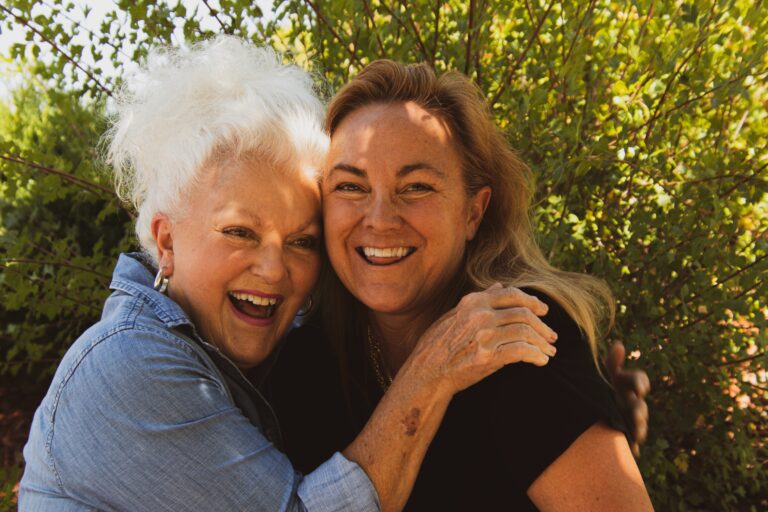The journey into senior care often begins with a simple step: recognizing the need for a helping hand. For many families, the decision to seek support for an aging loved one can feel overwhelming. The good news is, starting small with a home care agency can ease this transition, proving to be a beneficial step for both seniors and their families. By introducing care in increments, such as a couple of hours 2-3 times a week, seniors can maintain their independence while receiving the support they need.
Understanding the Basics of Part-Time Home Care
Part-time home care involves a caregiver or companion visiting the senior’s home for a few hours on designated days. This approach is less intrusive than full-time care, allowing seniors to adjust gradually to receiving assistance. It’s an excellent way to begin integrating professional care into a senior’s routine without causing significant disruption to their daily life.
Services Offered by Caregivers
During these visits, caregivers or companions can perform a variety of tasks, including:
1. Personal Care Services:
- Basic Daily Activities: Assistance with activities like bathing, dressing, grooming, and toileting, tailored for seniors with mobility or dexterity challenges.
- Mobility Assistance: Aid in safely moving around the home,minimizing fall risks, including transferring from bed to chair and walking support.
2. Medication Reminders:
- Timely Reminders: Ensuring seniors take their medications at the prescribed times.
- Organizing Medications: Helping organize pills and dosages to prevent confusion and errors.
3. Meal Preparation and Nutrition:
- Healthy Meal Planning and Cooking: Preparing balanced meals based on dietary needs and preferences.
- Grocery Shopping Assistance: Helping with grocery shopping, focusing on nutritious food choices.
4. Companion Services:
- Social Interaction: Engaging in conversations, games, or shared activities for companionship.
- Hobby Engagement: Encouraging and participating in the senior’s favorite hobbies and interests.
5. Transportation and Errands:
- Medical Appointments: Providing transport to medical appointments and therapy sessions.
- Running Errands: Assisting with errands like prescription pickups, shopping, or attending social events.
6. Light Housekeeping:
- Home Cleaning and Maintenance: Performing tasks like dusting, vacuuming, laundry, and general tidying.
- Organization for Safety: Organizing the home to improve accessibility and reduce fall risks.
7. Respite Care:
- Temporary Relief for Family Caregivers: Offering temporary caregiving to give family members a much-needed break.
8. Specialized Care for Chronic Conditions:
- Alzheimer’s and Dementia Care: Providing specialized strategies to manage memory care challenges.
- Palliative Care Support: Focusing on symptom relief and stress reduction for serious illnesses.
9. Technology Integration:
- Telehealth Assistance: Helping set up and manage telehealth appointments.
- Safety Technology Support: Installation and monitoring of emergency response systems or automated medication dispensers.
10. Customized Care Plans:
- Individual Assessments and Care Plans: Tailoring care plans based on thorough initial assessments, addressing the unique needs and preferences of each senior.
Positive Impacts on Seniors
- Maintains Independence: Part-time care allows seniors to continue living in their homes, preserving their sense of independence and familiarity with their surroundings.
- Enhances Safety: Regular visits from a caregiver can help identify and mitigate potential hazards in the home, reducing the risk of accidents.
- Promotes Social Interaction: Companionship combats loneliness and promotes mental well-being, especially crucial for seniors who live alone.
- Improves Health Management: With assistance in medication management and healthy meal preparation, seniors can better manage their health conditions.
- Provides Peace of Mind: Families gain peace of mind knowing their loved one is receiving professional care and companionship.
Starting the Process
- Assessment of Needs: Begin by evaluating the senior’s needs. Consider their daily routine, medical requirements, and the level of independence they currently enjoy. You might want to include a professional to help you if you are not sure.
- Research and Select an in-home care Agency: Choose a reputable home care agency. Look for reviews, ask for referrals, and ensure they provide the services your loved one needs. Meet with the agency to ake sure it is a good personality fit and that you feel they will treat your loved one as family.
- Personalized Care Plan: Work with the agency to develop a personalized care plan. This plan should be flexible and adaptable as the senior’s needs evolve.
- Gradual Introduction: Introduce the caregiver to the senior in a relaxed, informal setting. Let the relationship build naturally over the initial visits.
Considerations for Families
- Open Communication: Maintain open lines of communication with the caregiver and the senior. Regular feedback helps in fine-tuning the care provided.
- Respect Senior’s Autonomy: Encourage the senior’s participation in decision-making about their care to respect their autonomy.
- Monitor the Adjustment: Observe how the senior is adjusting to the new arrangement. Look for signs of comfort, as well as any reservations they might have.
Why it Matters
We were speaking with a family lately, where the wife has been the caregiver for her husband. She has been experiencing signs of burnout and some isolation. Her son contacted us to see if we can find someone to come out two or three times a week so she can go out shopping on her own without stressing that her husband might fall. She also now can meet up with some of her girlfriends for a leisurely lunch. These small breaks make it easier for her to cope with her husband’s situation.
Starting small with a home care agency can be a transformative experience for seniors. It’s a compassionate approach that respects their independence while ensuring their safety and well-being. By beginning with just a few hours of care each week, seniors can enjoy the benefits of professional assistance without the overwhelm of a major lifestyle change. Ultimately, this thoughtful approach can enhance the quality of life for seniors and provide invaluable support to their families.

From a young age, Stacey’s link to the senior care industry grew alongside her mother’s work at a nursing home, where she often accompanied her. By her early teens, she secured her first official job at a nursing home, laying the foundation for a profound journey in senior care spanning over four decades. Her roles varied from opening assisted living and memory care residences to working in nursing homes and independent senior living communities. As the former Director of Fun for 300 independent seniors, she expertly organized daily events and trips. Stacey’s unwavering passion, nurtured by her family, and professional dedication as a recreation therapist, reflect her deep commitment to preserving the dignity and well-being of seniors.
Stacey’s senior care expertise has been recognized by the media including U.S. News and World Report and Care.com.
Stacey and her husband Bryan are the owners of the senior in-home care agency A Place At Home – North Austin.




